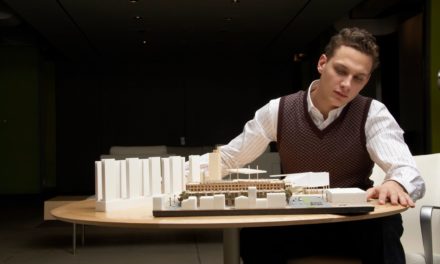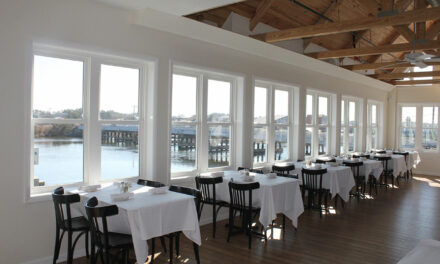Two years after the public release of v1 of the WELL Building Standard™ (WELL), the International WELL Building Institute™ (IWBI™) announces milestone achievements in the development, growth and expansion of the WELL Certification program. The world’s first building standard focused exclusively on the effects of the built environment on human health and well-being, WELL has brought health and well-being to the forefront of the sustainable building conversation and triggered new innovations in building practices, design and development.
New developments for the WELL Certification program this year include:
- Rapid Global Growth and Expansion: Over 270 projects encompassing 57 million square feet are now registered or certified under the WELL Building Standard in 23 countries across six continents, with the U.S., China, Australia, France, Canada and the UK leading the healthy building movement. Information on projects that have recently achieved or are registered to pursue WELL Certification can be found at www.wellcertified.com/projects.
- Milestone Certifications in Canada, Asia and the U.S.:
- Toronto Dominion Bank’s Toronto, Ontario office, TD23, was awarded WELL Certification at the Gold Level, making it the first project in Canada to achieve WELL Certification.
- Haworth, Inc.’s Shanghai Asia Pacific showroom became the first project in Asia to achieve WELL Certification through the IWBI pilot program.
- Situated within a LEED Platinum Certified building, Shangri-La Construction’s Headquarters in downtown Los Angeles achieved WELL Certification at the Gold level through the IWBI pilot program and LEED Gold as interior office.
- The Release of Precertification: WELL Precertification is a new certification tool that allows project owners to demonstrate leadership in health and wellness in the built environment, market the proposed wellness features of a project to potential tenants looking to occupy the WELL-certified space, and determine which features the project is likely to achieve during the full WELL certification review. Projects that meet the requirements for Precertification receive a formal WELL Precertification level and certificate award.
- New World Development Company Limited’s Kings Road project in Hong Kong is the first to achieve WELL Precertification, which was awarded at the Gold level. Other WELL Precertified projects include Citigroup’s Citi Hong Kong OBE East Tower office project, and the nearly 1.5 million square-foot Core Area of Beijing CBD Z3 Project.
- New Core & Shell Certification offering: WELL Core & Shell Certification is available for new core and shell developments or multi-tenant buildings seeking to implement the basic conditions necessary to achieve WELL Certification. The core and shell typology addresses the building structure, window locations and glazing, building proportions, heating, cooling and ventilation system, as well as water quality as it is supplied to the building. This typology also encourages consideration of the site in relation to amenities and opportunities for wellness.
- Expansion of the WELL Accredited Professional (WELL AP™) credential: Following the launch of the WELL AP™ exam last October, 2016 saw tremendous growth for the WELL AP credential, which signifies knowledge in human health and wellness in the built environment and specialization in the WELL Building Standard. To date, there are now over 600 WELL Accredited Professionals, with more than 1200 additional candidates who are registered to take the exam. Candidates can register for the WELL AP exam online and access the WELL AP Candidate Handbook at www.wellcertified.com/well-ap. WELL APs, WELL Faculty and other leaders from the WELL community are now viewable in a new online WELL People directory: www.wellcertified.com/directory/people.
- Rick Fedrizzi Named CEO and Chairman of the Board of Directors: Earlier this summer, IWBI announced that U.S. Green Building Council (USGBC) CEO and founding Chairman Rick Fedrizzi will join IWBI as the CEO and Chairman of its Board of Directors. Fedrizzi, a longtime champion of improving the world’s building stock in ways that promote the health, safety and well-being of the people who occupy them, will assume the CEO role on November 4, 2016.
- New Industry Partnerships Engage the Interior Design and Architecture Communities:
- American Society of Interior Designers: IWBI and the American Society of Interior Designers (ASID) announced a partnership to engage the interior design community to accelerate the integration of health and wellness in the built environment. The collaboration aims to advance the profession by demonstrating design’s impact on the human experience and will strengthen the capabilities of design professionals through co-developed research, education, and training opportunities around the WELL Building Standard. The alliance will also generate research on the health impacts of the built environment, with ASID and IWBI collaborating on a pre- and post- occupancy study on the new ASID National Headquarters in Washington, D.C., which is registered to pursue WELL Certification.
- American Institute of Architects: The American Institute of Architects (AIA) and IWBI have entered into a partnership to advance the Institute’s design and health initiative. As the first sponsor of the initiative, IWBI will bring leading edge health and design information, research, and professional education opportunities to AIA members to enable their stewardship of health and wellness-focused design and architecture. The partnership will generate shared research, co-developed informational articles, and direct support for the AIA’s recently established Design and Health Research Consortium.
- Future International Alignment: IWBI is collaborating with the U.S. Green Building Council (LEED), Green Building Council of Australia (Green Star), BRE (BREEAM) and others on WELL Crosswalks. Crosswalks are intended to identify synergies between WELL and other green building standards, and streamline efforts for projects seeking a dual rating by acknowledging where WELL requirements are deemed equivalent and aligned with aspects of the alternate building rating tool. IWBI continues to support research on equivalent standards to ones referenced within the WELL Building Standard. Project teams that wish to propose an equivalent standard may submit via the IEP online form.
“WELL’s tremendous growth over the past two years solidifies the importance of making health and well-being a central focus when it comes to the built environment,” said IWBI Founder Paul Scialla. “We are thrilled with the response from the industry and are excited to continue to build off of this momentum.”
Administered by IWBI, WELL is third-party certified through IWBI’s collaboration with GBCI, which administers 10+ billion square feet of LEED buildings globally, ensuring that WELL works seamlessly with LEED and other green building certification programs.
WELL will be featured at Greenbuild 2016 through WELL Workshops and the Health and Well-being Education Track. For the first time ever, IWBI will feature sessions in the IWBI Lounge (booth 929) in the Expo Hall. Sessions include a discussion on TD Bank Group’s WELL Certified project, a lesson on how to host a successful client conversation around WELL, a presentation on the partnership between IWBI and ASID, and a session highlighting WELL projects and milestones in China. A full schedule is available at http://www.wellcertified.com/greenbuild.
About the International WELL Building Institute™
The International WELL Building Institute™ (IWBI) is a public benefit corporation whose mission is to improve human health and well-being through the built environment. Public benefit corporations like IWBI are an emerging U.S. structure for corporations committed to balancing public benefits with profitability – harnessing the power of private capital for greater good. IWBI administers the WELL Building Standard™ (WELL) – a performance-based system for measuring, certifying and monitoring features of buildings that impact the health and well-being of the people who live, work, and learn in them. Fulfilling the vision of IWBI Founder Paul Scialla, IWBI has a pioneering altruistic capitalism model that will address social responsibility and demonstrate a sustainable model for philanthropy. IWBI has committed to direct 51 percent of net profits, after taxes, generated by registration fees, certification fees, and recertification fees received from real estate projects applying for WELL Certification toward charitable contributions and impact investment focused on health, wellness and the built environment. IWBI was established by Delos in 2013 pursuant to a Clinton Global Initiative commitment to improve the way people live by developing spaces that enhance occupant health and quality of life by sharing the WELL Building Standard globally. www.WELLcertified.com
About the WELL Building Standard™
The WELL Building Standard™ (WELL) is a performance-based system for measuring, certifying and monitoring features of the built environment that impact the health and well-being of the people who live, work and learn in the buildings. WELL focuses on seven categories of building performance: air, water, nourishment, light, fitness, comfort, and mind. Pioneered by Delos, the WELL Building Standard is grounded in evidence-based medical research that demonstrates the connection between the buildings where we spend more than 90 percent of our time and health and wellness impacts on us as occupants. The WELL Building Standard is administered by the International WELL Building Institute™ and third-party certified by Green Business Certification Inc. (GBCI). www.WELLcertified.com





